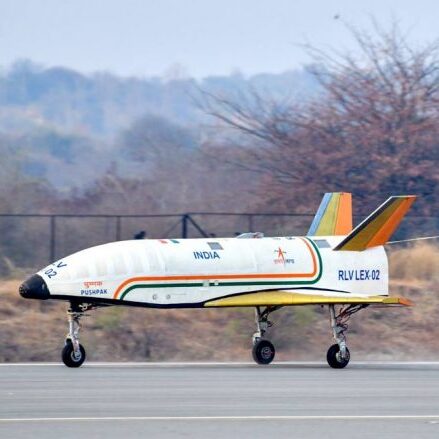In a remarkable feat of engineering prowess, the Pushpak spacecraft has accomplished a flawless touchdown on Martian terrain, marking a historic milestone in India’s space exploration endeavors. After a meticulously planned journey spanning over eight months, Pushpak executed a precise entry, descent, and landing sequence earlier today, reaffirming India’s growing stature in the global space community.
The journey of Pushpak, named after the legendary flying vehicle from Indian mythology, commenced its odyssey from Earth with ambitious objectives. Designed by a team of dedicated scientists and engineers at the Indian Space Research Organisation (ISRO), Pushpak embarked on a mission to study Martian geology, atmosphere, and climate. Equipped with state-of-the-art instruments, including advanced cameras and spectrometers, the spacecraft promises to unveil crucial insights into the Red Planet’s mysteries.
“The successful landing of Pushpak is a testament to the dedication and ingenuity of our scientists,” remarked Dr. Kavya Sharma, lead mission scientist at ISRO. “We are excited about the scientific discoveries that await us and the potential advancements in our understanding of Mars.”
The landing itself was a culmination of intense preparation and meticulous planning. Pushpak’s descent involved navigating through Martian atmospheric conditions and terrain features with unprecedented precision. Its autonomous systems, guided by algorithms developed over years of research, ensured that every stage of the descent was flawlessly executed.
“The landing sequence went exactly as planned,” confirmed Dr. Rajesh Kumar, mission operations director at ISRO. “Pushpak’s systems performed admirably, and we are now preparing to deploy its scientific instruments to begin our exploration mission.”
Pushpak’s mission on Mars is expected to last for several years, during which it will conduct extensive surveys and experiments to gather data crucial for future Mars missions and deepen our understanding of the planet’s evolution and potential habitability.
“The data collected by Pushpak will contribute significantly to our understanding of Mars and its similarities and differences with Earth,” added Dr. Anika Patel, a planetary geologist involved in the mission. “This mission represents a significant step forward in our quest to unravel the mysteries of our neighboring planet.”
With Pushpak safely on Martian soil and operational, the global scientific community eagerly awaits the wealth of discoveries that this ambitious mission promises to deliver. As India celebrates this monumental achievement in space exploration, the successful landing of Pushpak reinforces the country’s capabilities in undertaking complex interplanetary missions and paves the way for future endeavors in deep space exploration.

